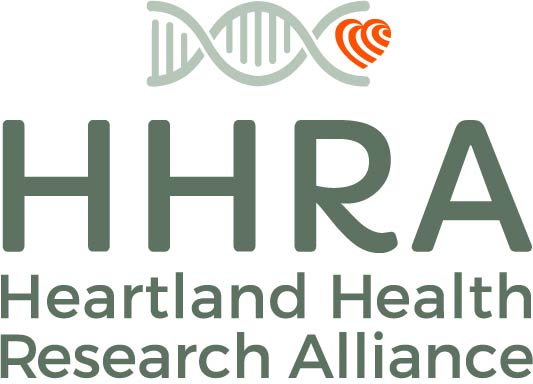Bibliography Tag: policy and politics
Steve Smith, Comment of the Save Our Crops Coalition, RE: Notice of Receipt of Several Pesticide Petitions Filed for Residues of Pesticide Chemicals in or on Various Commodities; Pesticide Products; Receipt of Applications to Register New Uses, Docket Nos. EPA–HQ–OPP–2012–0841-0001, EPA-HQ-OPP-2012-0215-0002,
Thursday, January 17, 2013.
SUMMARY:
The Save Our Crops Coalition (SOCC) is a grassroots coalition of farm interests
organized for the specific purpose of preventing injury to non-target crops from
exposure to 2,4-D and dicamba. This comment requests the Environmental Protection Agency (EPA) evaluate dicamba residue tolerances for dicamba tolerant crops and the tolerances proposed by SOCC concurrently, and withhold registration of all new uses of dicamba until EPA has established residue tolerances for effected crops.
Steve Smith, “Deployment of Dicamba-resistant soybeans and what it will mean to canned and frozen food processors and specialty crop growers in the Midwest,” Testimony before Congress, Domestic Policy Subcommittee of Committee on Oversight and Government Reform, September 30, 2010.
SUMMARY:
Steve Smith, the Director of Agriculture at Red Gold, the largest canned tomato processor in the U.S., testifies before Congress on the approval of dicamba-resistant soybeans. FULL TEXT
Chuck Abbott, “Arkansas Task Force Aims for Long-Term Recommendations on Use of Dicamba,” The Fern, August 9, 2017.
SUMMARY:
Arkansas has appointed a 21-member task force to help identify solutions for the dicamba drift damage problem, with 900 complaints received this year so far. FULL TEXT
Environmental Protection Agency, “Dicamba (3,6-dichloro-o-anisic acid); Pesticide Tolerance,” 40 CFR Part 180, Federal Register, January 6, 1999, Vol. 64, No. 3.
SUMMARY:
Updates tolerances for dicamba. FULL TEXT
DuPont, FeXapan Herbicide Label, July 23, 2015, EPA Registration Number 352-913.
SUMMARY:
First label for BASF FeXapan Herbicide containing DGA dicamba and inert ingredients intended to reduce volatility and drift. FULL TEXT
Environmental Protection Agency, “Permanent Group 1 Tolerances By Pesticide,” August 3, 1999.
SUMMARY:
Sets tolerances for pesticides after the passage of the FQPA. FULL TEXT
Environmental Protection Agency, “Reassessed Group 2 Tolerances by Pesticide,” August 4, 1999.
SUMMARY:
Reassessed tolerances for pesticides following the passage of the FQPA. FULL TEXT
Environmental Protection Agency, 40 CFR Parts 180, 185, and 186, “Consolidation of Certain Food and Feed Additive Tolerance Regulations,” Federal Register, Vol. 65, No. 101, May 24, 2000.
SUMMARY:
The Office of Pesticide Programs is transferring certain of the pesticide food and feed additive regulations that are now in 40 CFR parts 185 and 186 to part 180. These regulations are being consolidate because as a matter of law all of the
pesticide tolerances are now considered to be regulated under FFDCA section 408 as amended by the Food Quality
Protection Act (Public Law 104–17) and they no longer need to be separate. Includes dicamba tolerances. FULL TEXT
Environmental Protection Agency, “COMPLIANCE ADVISORY: High Number of Complaints Related to Alleged Misuse of Dicamba Raises Concerns,” August 2016.
SUMMARY:
EPA and state agencies have received an unusually high number of reports of crop damage that appear related to misuse of herbicides containing the active ingredient dicamba. Investigations into the alleged misuse are ongoing. This Compliance Advisory is intended to provide information on the agricultural and compliance concerns raised by these incidents. FULL TEXT
United States Department of Agriculture, “Monsanto Petitions (10-188-01p and 12-185-01p) for Determinations of Nonregulated Status for Dicamba-Resistant Soybean and Cotton Varieties: Final Environmental Impact Statement,”
December 2014.
SUMMARY:
The U.S. Department of Agriculture (USDA), Animal and Plant Health Inspection Service (APHIS) received two requests (petitions) from Monsanto Company, St. Louis, MO (Monsanto) seeking determinations of nonregulated status for genetically engineered (GE) plant varieties referred to as MON 87708 soybean and MON 88701 cotton, that have been engineered to be resistant to the herbicide dicamba (Monsanto, 2012b; 2012a). These GE plant varieties are currently regulated by APHIS, and Monsanto requests that APHIS grant the petitions (Petition 10-188-01p for MON 87708 soybean and Petition 12-185-01p for MON 88701 cotton), so that these varieties can be grown without any APHIS regulatory oversight. Since these two GE plant varieties are currently under APHIS regulatory oversight, the Agency requires
Monsanto to comply with a full range of safeguarding measures to ensure that these regulated GE plant varieties do not transfer or spread from their APHIS-approved outdoor planting sites. APHIS authorization is also required to move these regulated varieties interstate. Once a developer of a GE plant has obtained sufficient information to conclude that its regulated GE plant is unlikely to cause injury, damage, or disease to plants or plant products (i.e., pose a plant pest risk), it may submit a petition to APHIS to no longer regulate the organism. This is referred to as seeking nonregulated status. If a petition for nonregulated status is approved by APHIS, permits or notifications are no longer required by the Agency to grow or ship the GE plant throughout the United States and its territories. If APHIS determines that nonregulated status is appropriate for one or both the Monsanto GE varieties, they will no longer be subject to any regulations pursuant to Part 340. FULL TEXT
